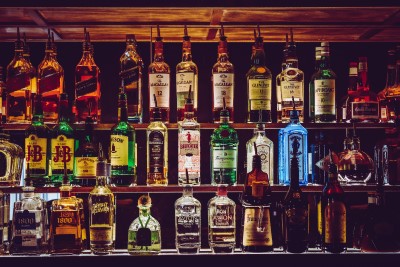DEPRESSION AND DIET Your Diet Could Be Making Your Depression Worse

Eating healthy for depression
Eating healthy for depression isn't something depressed people worry about. This knowledge is important to know or share with someone who needs it.
Diet and depression
When you realize you’re in some level of depression or someone notices you are, healthy eating may be the least of your worries.
Depression and diet and exercise are two natural remedies of depression. Exercise is proven to fight mild depression (see blog here) by increasing serotonin levels and releasing endorphins in the body to feel better.
Let’s take a look at the link between depression and diet. What foods to avoid and which foods may help depression.
Foods that could be adding to depression
Sugar

If you're coping with depression, it can be important to know what not to eat. Unfortunately, many of these foods are the ones people often turn to when they're having a rough day.
We know that sugary foods and drinks are not good for our bodies. What you may not realize is that just as sugar can impact your waistline, it can also significantly impact your mood.
There are food choices all around us filled with sugar, such as cakes, cookies, cereal, drinks, and even condiments such as barbecue sauce, salad dressings, and more.
You may be surprised how many foods are perceived as "healthy" yet contain extraordinary amounts of added sugar. Examples of tricky foods like this are granola bars, energy bars, trail mix, and honey roasted nuts.
Keep in mind that sugar will not always be labeled simply as "sugar" on the ingredient list. To be on the lookout for added sugar, you may want to also look for the following terms:
- Corn syrup
- Dextrose
- Fructose
- High fructose corn syrup (HFCS)
- Lactose
- Maltose
- Sucrose
Be mindful of your choices, and limit foods high in sugar, particularly those with added sugars.
Keeping your blood sugar levels more evenly balanced throughout the day can help your mood stay more evenly balanced too.
Refined Grains
Highly refined carbohydrates such as white bread/pasta, white rice, crackers, cookies, and soda increase blood sugar and trigger a hormonal response in the body to reduce blood sugar levels.
This response also may result in mood changes, fatigue, and other symptoms of depression.
Alcohol

Although you may think a drink or two will relax you, alcohol is known to contribute to depression.
Alcohol has a sedative effect on your brain. While a few beers or glasses of wine can seem to relieve stress and make you feel more relaxed and calmer, they can actually put you at an increased risk of depression.
Alcohol can also affect your body’s functions in a negative way that further exacerbates depression symptoms.
Alcohol disrupts sleep and alters the thought process, which can increase depression symptoms.
Alcohol can lower serotonin and norepinephrine levels, which help regulate mood. Lower levels of these chemicals can make a depressed person more depressed.
Read about serotonin released with exercise to fight depression here.
Caffeine
Millions use caffeine, and, like anything else, it can be used in moderation or to the extreme.
The evidence that caffeine makes depression worse is inconclusive, but it may contribute indirectly to depression.
Caffeine may be linked indirectly for people who are particularly sensitive to the effects of caffeine or who have too much caffeine.
Caffeine can cause sleep problems that affect mood. The type of caffeinated drink, along with a person’s age, may also play a role.
Source site: https://www.verywellmind.com/foods-for-depression-4156403
Foods that help depression

Dark Green leafy vegetables
Fatty fish (salmon, sardines, and tuna)
Canola and soybean oils
Nuts, especially walnuts
Flaxseed
A more in-depth list here breaks down the vitamins important for a healthy mind.
Beta-carotene has powerful antioxidant properties and is found in foods like:
- apricots, broccoli, cantaloupe, carrots, collards, peaches, pumpkin, spinach, and sweet potato
Vitamin C is necessary for the repair of all body tissues and is found in foods like:
- blueberries, broccoli, grapefruit, kiwi, oranges, peppers, potatoes, strawberries, and tomato
Vitamin E is important for the health of your brain and skin and is found in these foods:
- margarine, nuts and seeds, vegetable oils, wheat germ
Complex carbohydrates help manage blood sugar spikes and are found in:
- whole grains and legumes
Healthy proteins make hormones and enzymes for a healthy body and are found in:
- beans and peas, lean beef, low-fat cheese, fish, milk, poultry, soy products, and yogurt
Omega-3s can fight depression and anxiety and are found in these foods:
- flaxseed, canola and soybean oils, nuts (especially walnuts), and dark green, leafy vegetables
Other vitamins may help with depression
Vitamin B-12 and other B vitamins play a role in producing brain chemicals that affect mood and other brain functions.
Low levels of B-12 and other B vitamins such as vitamin B-6 and folate may be linked to depression.
Train your mind to like healthy foods
You can train your brain to crave healthy foods instead of the typical junk food we often want.
Choices like sweet potato instead of French fries, or bran flakes instead of sugary cereal, are easy wins that can help contribute to healthier living.
They will provide your body with nourishment rather than a temporary sugar high, leading to weight gain and sugar crashes.
There is an adequate replacement for every processed junk food that will leave you feeling good after you finish eating, rather than experiencing crashes or headaches.
Helpful tips to start training your brain at home.
Habit Breaking – If your habits are causing you problems, it's time to create a new one. If you traditionally made a late afternoon trip to the vending machine for chocolate, instead take a walk or make a cup of herbal tea. It shouldn't take long for you to create a new habit.
Three Colors – There have been studies that found people respond well to having three colors on their plate, aim to create a plate that features three colors.
Do the same for any snacks. It's not as difficult as you think – nuts, dried fruit, and a square of dark chocolate is the perfect option. Woohoo, dark chocolate!
Health On Hand – If you really want to ditch junk food, you need to have healthy food on hand at all times. It's the most efficient way to keep yourself on track – you should also know what types of foods are most likely to lure you in so that you can keep them away altogether.
When you’re battling depression, it can be hard to make sure you have the right foods on hand but knowing what to eat and what not to each is a start. Knowing foods will make a difference in your depression is key, and when you are in the thick of it, every little bit can help. Ask for help getting the right foods in your house and keeping them there, so you don’t fall back on junk food. Your body and mind are worth the effort.
Until next time
Be strong, be fit, and keep battling day after day,
You can get out of this.

Want to know the latest happenings around The Fit Massage Therapist?
Come hang with us, where we are happy and massaging pain-free.
Don't worry, your information will not be shared.




